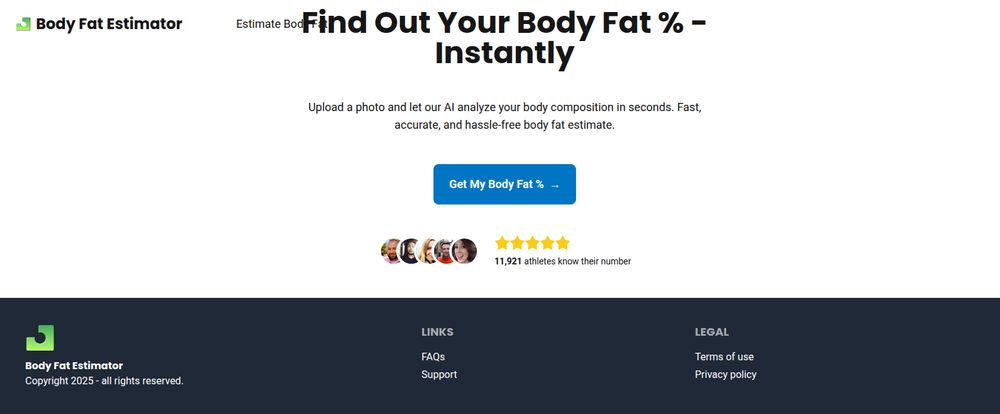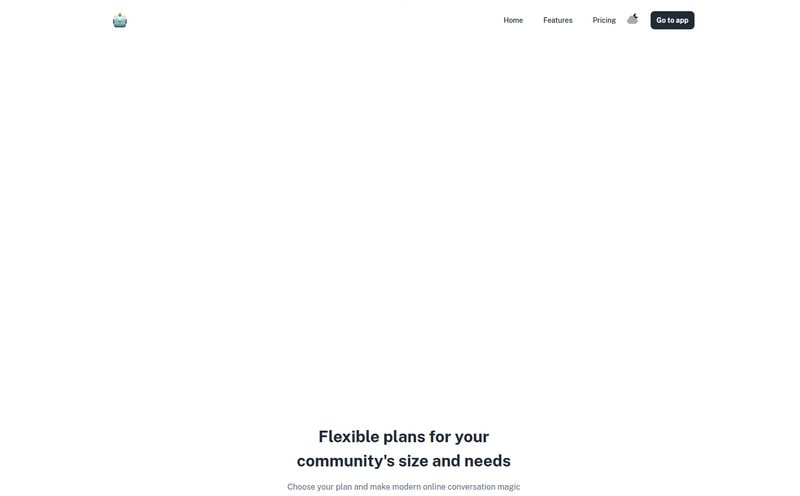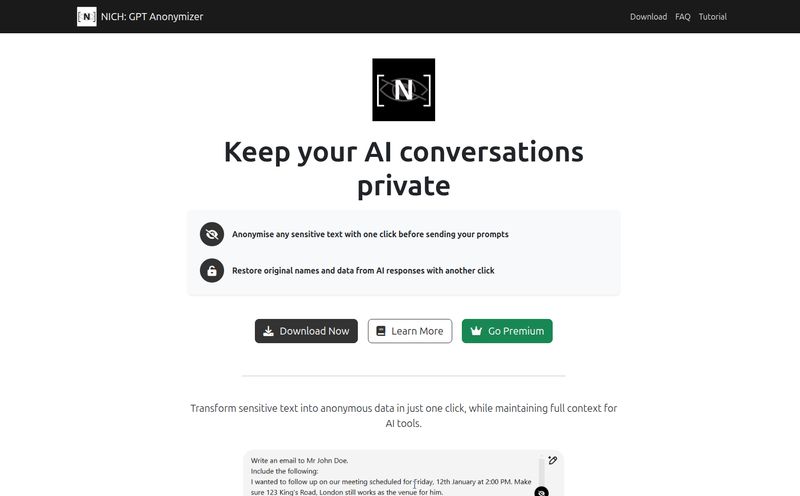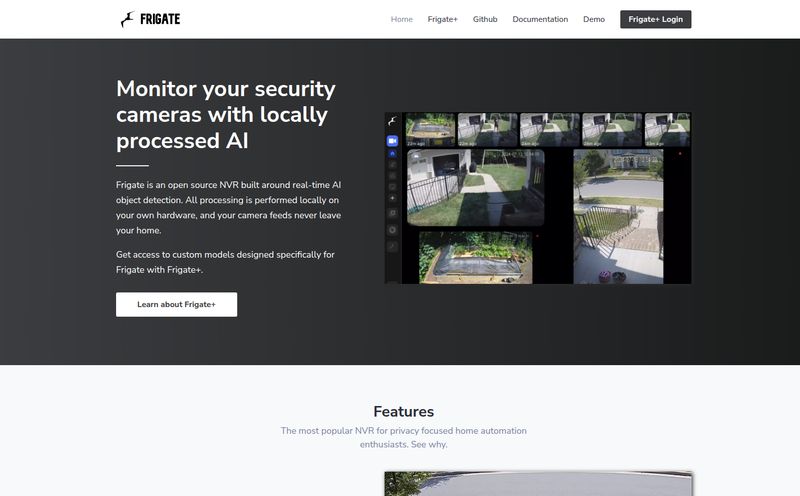If you’ve ever been on a fitness kick, you know the singular frustration of the bathroom scale. You eat clean for a week, crush all your workouts, and the number… doesn’t move. Or worse, it goes up. It’s enough to make you want to throw the thing out the window. We’ve all been there.
For years, people in the know—trainers, athletes, nutritionists—have told us that weight is a pretty rubbish metric. The real MVP is body composition. Specifically, your body fat percentage. It tells a much richer story about your health and progress than a simple number in pounds or kilos ever could. But getting that number has always been a bit of a pain. You’ve got those old-school body fat calipers (awkward), bioelectrical impedance scales (notoriously finicky), or the supposed gold standard, the DEXA scan, which involves appointments and a price tag that can make your eyes water.
So when I stumbled across a tool called the Body Fat Estimator that claims to give you an accurate reading from a simple photo using AI, my curiosity was definitely piqued. A hassle-free estimate in seconds? Sounds too good to be true, right? Well, I had to find out.
So, What Exactly Is This Body Fat Estimator?
At its core, the Body Fat Estimator is exactly what it says on the tin. It's a web-based platform designed to give you a quick, simple estimate of your body fat percentage. The big hook here is the technology. You’re not pinching skin or standing on a fancy scale. You just upload a photo of yourself, and their AI gets to work.

Visit Body Fat Estimator
The site promises a “fast, accurate, and hassle-free” experience, and honestly, that’s the holy trinity for any fitness tool. We’re all busy, we all want data we can trust, and nobody wants to jump through a dozen hoops to get it. The platform claims over 11,000 athletes are already using it, which adds a nice bit of social proof. It's not just for the pros though; it seems aimed at anyone who's tired of guessing and wants a more concrete way to track their body composition changes.
Putting AI to the Test: How Does It Compare?
The first thing that pops into my head is, how? How can a photo possibly compete with a medical-grade scan? The website makes a pretty bold claim right on its pricing page: “Accurate Body Fat Estimates for 42x Less Than a Physical DEXA Scan.” They even quote the average cost of a professional scan in the US at $125.50.
While the company is a bit cagey about the specifics of their AI model (which is fair, it's their secret sauce), the concept is based on photogrammetry—analyzing shapes, volumes, and silhouettes from images. I imagine the AI has been trained on thousands of body scans, learning to associate visual cues with specific body compositions. It’s like a highly trained eye that can spot patterns a human might miss. For it to work well, you've got to feed it good data. That means consistent lighting, the same pose, and similar clothing (or lack thereof) for every photo you upload. Garbage in, garbage out, as they say.
Is it as accurate as a DEXA scan? Probably not, no. But that's missing the point. A DEXA scan is a high-precision snapshot. This tool is more like a motion picture. It's designed for tracking trends over time. Seeing that percentage tick down from 22% to 21% to 20% over a few weeks is incredibly motivating, even if the absolute number is off by a point or two from a clinical test.
Let's Talk Money: The Pricing Breakdown
Okay, this is where I was genuinely surprised. Given the tech involved, I was expecting some kind of hefty subscription. But the pricing is refreshingly simple and, dare I say, cheap. There are no recurring fees, you just pay for what you need. It's a model I wish more SaaS companies would adopt.
| Plan | Price | Features | Best For |
|---|---|---|---|
| Snapshot | $3 | 1 Body Fat Estimate | The curious first-timer |
| Progress | $9 | 10 Body Fat Estimates | Tracking a fitness program |
| Athlete | $25 | Unlimited Estimates (Use forever) | Dedicated athletes and trainers |
The 'Snapshot' Plan: Just Dipping Your Toes In
For three bucks, you can get a single scan. This is a no-brainer for anyone who’s just curious. It's less than a fancy coffee, and it gives you a chance to see how the whole process works without any real commitment.
The 'Progress' Plan: For the Dedicated Tracker
At $9 for 10 scans, this is the sweet spot for most people. If you’re starting a 12-week fat loss phase or a muscle-building program, this gives you enough scans to check in weekly and still have a couple to spare. It works out to less than a dollar per scan.
The 'Athlete' Plan: The All-You-Can-Scan Buffet
This is the one that really caught my eye. For $25 you get unlimited scans that you can use forever. That is an insane value. If you're a personal trainer, you could use this with all your clients. If you’re a fitness obsessive like me who likes to track every little change during a bulk or cut, this is the one. It’s a one-and-done purchase for a lifetime of data.
Plus, all plans come with a 7-day money-back guarantee, which shows a lot of confidence in their product.
The Good, The Bad, and The AI-Generated
After playing around with the concept, I have some thoughts. The biggest advantage is obviously the convenience and cost. Being able to get a data point from your phone in your bedroom is a game-changer. It lowers the barrier to entry for serious fitness tracking and provides a fantastic motivational loop. Seeing the number go down is just the kick you need to stick with your diet on a tough day.
On the flip side, we have to talk about the potential for inaccuracy. The quality of the AI's analysis is completely dependent on the quality of the photo you provide. Bad lighting, a weird angle, or even different body postre can throw off the numbers. This isn't a medical device, and it's important to treat it as such. It's a compass, not a GPS. It will point you in the right direction, but it might not be pinpoint accurate on your exact location. The lack of transparency about the AI model is also a slight concern for data nerds, but it's understandable from a business perspective.
Who Should Actually Use This Thing?
In my opinion, this tool is perfect for a few specific groups. Fitness enthusiasts who are serious about tracking their progress during a transformation will get immense value here. Personal trainers could build the $25 Athlete plan into their services, offering clients a modern, data-driven way to see results beyond the scale. It's also great for anyone motivated by data who finds traditional methods either too expensive or too inconvenient.
Who is it not for? Anyone who needs medical-grade precision for health monitoring. If your doctor needs to know your body composition for a specific health reason, stick with the clinical scans. This is a fitness tool, not a diagnostic one. Let's keep it in its lane.
Burning Questions I Had (and Found Answers To)
The site has a little FAQ, but I've fleshed it out with my own take.
- Should I just get one scan or go unlimited?
- If you're just curious, the $3 scan is perfect. But if you're actually trying to track progress over more than a week, the value of the 10-scan or unlimited plans is way, way better. For $25, the unlimited option is a steal if you plan to be into fitness for the long haul.
- What if I buy 10 scans and don't use them all?
- Based on their model, it seems the estimates don't expire. You just have them in your account until you use them. So no pressure to scan just for the sake of it.
- Can I get a refund if I don't like it?
- Yep, they have a 7-day money-back guarantee. It’s a pretty standard, consumer-friendly policy that I always like to see.
- How do I take the 'perfect' photo for an accurate reading?
- While not explicitly stated in deep detail, common sense for photogrammetry applies. Use bright, even lighting (no dramatic shadows). Stand in a relaxed, natural pose. Use the same pose and distance from the camera every single time. And wear minimal, form-fitting clothing—or none at all, if you’re comfortable. Consistency is king.
- Is my data… you know… private?
- Uploading photos of yourself in your underwear can feel a bit vulnerable. Their privacy policy is the place to check, but generally, platforms like this anonymize data for training their AI. It’s a valid concern and something you should always check before uploading personal images anywhere.
My Final Verdict
So, is the Body Fat Estimator a gimmick or the future? I think it's a bit of both, in the best way. It’s not going to replace a DEXA scan, but it's not trying to. It’s carving out a new space for itself as an accessible, affordable, and incredibly convenient tool for progress tracking.
It democratizes data that used to be locked behind a high price tag. For anyone who lives and breathes fitness, or even for someone just starting out who needs that extra motivational push, this is a powerful new weapon to have in your arsenal. The barrier to entry is so low, it's almost silly not to give it a try. For the price of a latte, you might just find your new favorite way to measure what really matters.
Reference and Sources
- Body Fat Estimator Official Website (Note: This is the assumed URL based on the name)
- Mayo Clinic - What is Body Fat?



